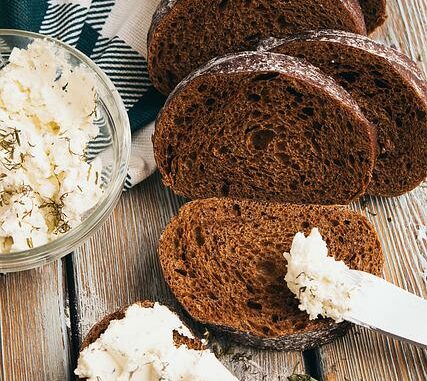
Losing weight can be a real struggle for many people. So, if you want to start losing weight quickly, you’ve probably been searching online for the best way to do that. There’s a lot of internet buzz about the military diet. So we wanted to know exactly what is the military diet and does it work?
Keep reading to get the scoop.
What Is The Military Diet?
The first thing you should know is this fad diet has no connection to the military. In fact, it’s just a super calorie restricted diet that is a form of intermittent fasting.
Intermittent fasting is when you have periods of time with restricted versus unrestricted eating.
If you plan to try this diet, you’ll need to stick to the 3 day, low calorie restricted eating plan followed by 4 days of unrestricted eating and exercise.
There are plenty of stories on social media that claim you can lose up to 10 pounds within a week by doing this diet. From what we could learn, that will vary from person to person.
Claims that sound too good to be true generally are, but let’s dive deeper to learn more. Moreover, there is no science to back up the statements of this fad diet.
How To Do The Military Diet
This diet is very simple to understand as it is completely spelled out. Followers eat the foods given for each of the 3 meals for 3 days in a row.
No exercise is required during the 3 days. After this portion of the diet is over, dieters eat normally and are encouraged to exercise for the next 4 days of the week.
The 4 days of off-plan eating are recommended to stick within 1500 calories approximately and a meal plan is included on their website. This is in order to maintain a calorie deficit so that you will continue to lose weight.
However, without measuring and counting calories, it will be difficult to know how many calories you are actually consuming.
Everything you will need to eat is provided in set meal plans for each of the 3 daily meals. There are no snacks allowed.
Each day’s calorie count during the plan comes in at around 1000 calories, which is very low. In comparison, the US Dietary Guidelines recommend 1600-1800 daily calories for women and 2200-2400 for men.
So you can see this diet plan is extremely calorie restricted.
You should never start any diet without first checking with your doctor, as calorie / nutrient deficiencies on the military diet are not right for everyone.
The rest of the week suggests eating a balanced, less restrictive diet. The diet can then be followed for 4 weeks but is not meant to be done indefinitely.
The following video helps explain what you eat and do on this diet.
What Do You Eat On The 3-Day Diet?
The foods are very simple and easy to source on this plan. Each of the 3 days is divided into 3 meals – breakfast, lunch and dinner – with no snacks in between.
Let’s take a look at each of the days on the plan to give you a quick idea of what you will be allowed to eat.
Day 1
Breakfast consists of 1/2 grapefruit, 1 slice of toast (whole wheat is preferable) with 2 tablespoons of peanut butter and 1 cup of black coffee or green tea.
Coffee and tea should contain caffeine, as caffeine can provide a slight boost to your metabolism and help suppress appetite. Water can also be substituted if you prefer.
Lunch consists of 1/2 can of tuna, 1 slice of bread or toast (again whole wheat is recommended) and 1 cup of black coffee or tea with caffeine.
Dinner is 3 ounces of any protein meat, 1 cup of green beans, 1 small apple, half a banana and 1 cup of vanilla ice cream.
The diet claims you won’t feel deprived because you are able to indulge in ice cream. Therefore, the fat and carbohydrates should help satisfy followers. However, the low calories might be a challenge for some.
Day 2
If you’ve made it to day 2, your breakfast will consist of 1 egg (cooked any style), half a banana and 1 slice of bread or toast (again whole wheat is best).

Lunch consists of 1 hardboiled egg, 5 saltine crackers and 1 cup of cottage cheese.
For dinner you would eat 2 hot dogs (without buns), 1 cup of broccoli, half a cup of carrots, half a banana and half a cup of vanilla ice cream.
Drinks are not given, but you can continue with water, black coffee and tea with caffeine as on day one.
Day 3
On day 3 for breakfast you will eat 1 slice of cheddar cheese, 1 small apple and another 5 saltine crackers. Sounds simple enough, right?
At lunchtime, you’ll eat 1 egg (cooked any style), and 1 slice of bread or toast (whole wheat).
Dinner consists of 1 cup of tuna, half a banana and 1 cup of vanilla ice cream.
There are substitutions allowed in case you can’t stomach a certain food or you have dietary restrictions. Unlimited amounts of water and herbal teas are also encouraged.
However, adding sweeteners other than Stevia are not recommended as they spike blood sugar levels.
Why Does It Work?
You will lose weight doing the military diet.
This is because you are in a state of calorie deficit with reduced carbohydrates. A strict plan such as this burns glycogen and fluid reserves which give us energy. And when that glycogen is not replaced, you will lose weight.
It is similar to what happens on a keto diet.
However, it is not necessarily all fat that is being burned. You may be losing fluids as well which will show up as weight loss.
The problem with this plan is that once you return to the way you ate before, you will gain it all back. Once your sodium and calorie load increases again, you’ll put weight on.
So this is not a sustainable way to lose weight longterm.
It is always best to lose weight in a controlled manner. Science recommends to strive for 1-2 pounds of weight loss per week.
This will ensure that you lose fat over potential water and muscle loss.
Pros of Military Diet
- rapid weight loss
- easy to follow
- regimented plan
- no subscriptions or custom meals to order
Cons of 3-Day Diet
- not sustainable
- nutrient and fiber deficient
- possible hunger, dizziness, headaches from low calorie intake
- boredom from lack of food choices
- may encourage an unhealthy relationship with food
- highly processed foods are not the healthiest choices
- doesn’t address longterm maintenance of weight loss
Should You Try The Military Diet
There is no science to back up the claims of the military diet. However, the calorie deficit while on this plan will help followers to lose weight.
There are many factors that contribute to one’s ability to lose weight including age, sex, activity levels and whether or not you take prescription medications.
In order to lose weight for the longterm, a combination of calorie restriction and activity must be taken into account. If you eat more calories than you can burn off, it will result in gain.
Final Thoughts On What Is The Military Diet
A diet that is healthy and balanced is usually a far more effective way to sustainably lose weight and keep it off. What works for one person may not work for another.
Therefore, eating healthy foods and getting regular exercise is always the safest, proven way to shed excess weight. Finding a way to eat and exercise that works for you will help you to maintain your results.
Have you tried the military diet? How did it work for you? Tell us in the comments below.

I have heard of intermittent fasting but I didn’t know that it is also called the military diet. The diet does seem simple and would be great if you needed to lose weight in a hurry to get into a wedding dress or something like that. I wonder if the Tuna could be substituted for chicken or something else. I can’t stand any type of seafood so that part wouldn’t work for me. Also, I’m wondering if you could still reduce calories, but with more vegetables, etc.
You wrote a really good review that provides food for thought for those looking to lose weight fast. I do agree though, that it isn’t very sustainable in the long run.
The Military Diet is a fad diet only meant for a quick few days and slight weight loss. It’s definitely not a lifestyle change intended for healthy, sustainable weight loss. I would think you could substitute the tuna for another protein of your choice, as we all have our own food tolerances. From my own experience, it’s always a positive thing to add more low glycemic vegetables to your intake. The fiber and water will help fill you up without the weight gain. Glad you enjoyed the review. Thanks for taking the time to comment.